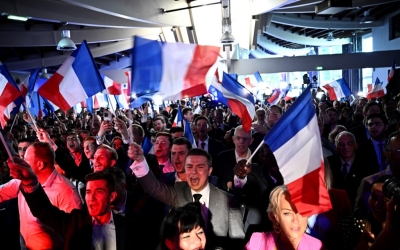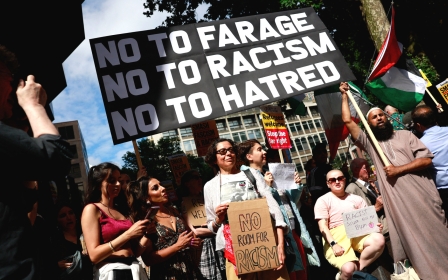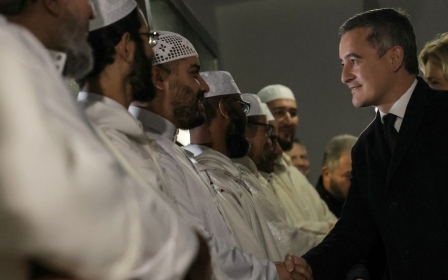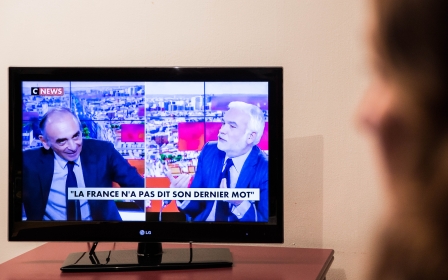France orders terrorist trial for far-right group planning attacks against Muslims
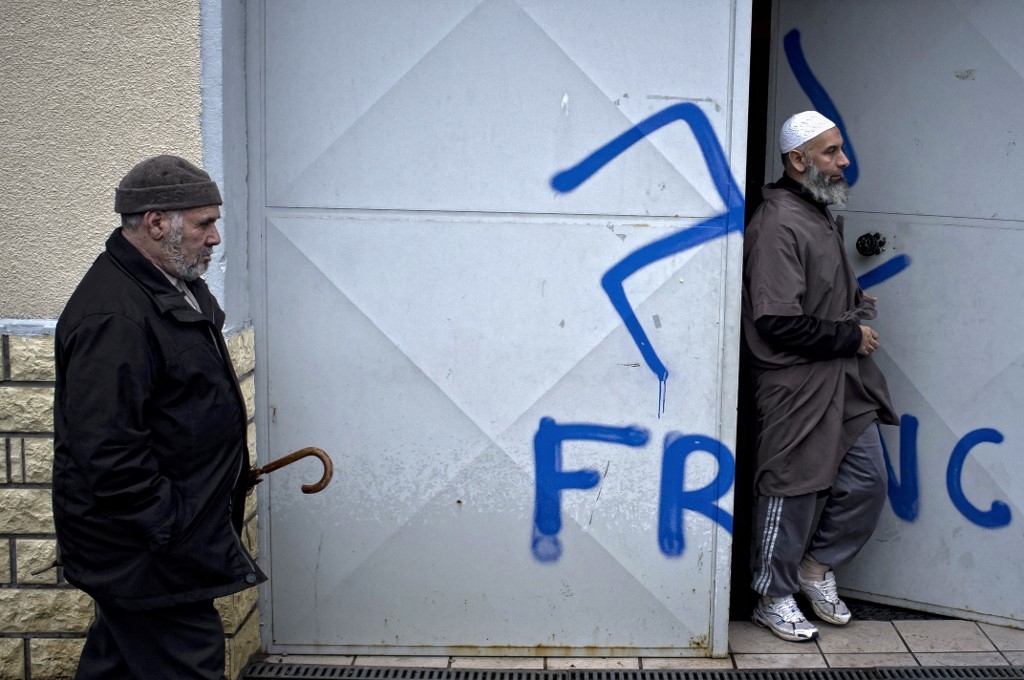
A counterterrorism investigating judge in France has ordered a trial before the Paris Criminal Court for a group of 16 people suspected of having prepared violent actions against Muslims in the country between 2017 and 2018, the French news agency AFP reported on Wednesday.
In the order, released on 21 August, the magistrate described the group, Action des Forces Operationnelles (AFO, "action of operational forces"), as a "hierarchical and structured organisation" whose objective was to carry out "concrete violent action projects in symbolic places such as mosques" or by targeting halal food.
The 13 men and three women cited in the court order are mainly suspected of terrorist criminal conspiracy and search for weapons.
Among the violent projects planned by the group, which were sometimes merely declarative, were "killing 200 radicalised imams", targeting rapper Medine or preacher Tariq Ramadan, throwing grenades into "Arab cars" and "exploding a couscous maker from a distance".
The order, seen by AFP, cites a document in which the particularly active AFO cell in the French capital planned to "explode" the door of a mosque in Clichy-la-Garenne, in the Paris region, and to position "long-range shooters".
New MEE newsletter: Jerusalem Dispatch
Sign up to get the latest insights and analysis on Israel-Palestine, alongside Turkey Unpacked and other MEE newsletters
The group also contemplated the possibility of using female members to poison halal food in supermarkets with a component of rat poison, hidden under niqabs.
While the incriminated acts were initially considered as criminal, the investigating judge reclassified them as misdemeanours following the requisitions of the National Anti-Terrorism Prosecutor's Office (Pnat) in May 2023.
This means that the accused would incur a shorter sentence and will be tried by a criminal court rather than a special Court of Assizes, a trial court specially composed to rule on terrorism and organised drug trafficking. Many of the defendants, born between 1949 and 1986, have a military background or have mentioned an attraction to the army, according to AFP.
Among them are an antique dealer, a night-time telephone operator for a taxi company, a human resources consultant, a restaurateur, a craftsman, an accountant, an unemployed person and a teacher.
According to the Pnat, the accused members of the group, dismantled in 2018, have "widely denied having personally intended to carry out violent actions".
Rise in anti-Muslim acts since 7 October
Several people affiliated with far-right groups have been sentenced in recent years in Paris.
Six members of the Organisation of Social Armies, including its main figure Logan Nisin, were jailed with prison sentences of up to nine years in late 2021.
The appeal trial of the Barjols, three of whose members were convicted in February 2023 for preparing violent actions, particularly against the head of state and migrants, is due to take place in October.
Four men belonging to the neo-Nazi movement were sentenced in Paris in June 2023 to prison sentences ranging from one to 18 years.
According to a report published in 2022 by Europol, France is the European country most exposed to the threat of far-right terrorism.
In the study dedicated to terrorism trends in the EU, the European police agency indicated that around half of the arrests made in connection with far-right terrorism cases in 2021 had taken place in France (29 out of 64).
In 2019, alerted by the increase in attacks committed by far-right groups and the "growing resonance" of their ideas within French society, the National Assembly launched a parliamentary inquiry at the request of the left-wing party France Unbowed, which found that far-right violence had reached "a worrying level of intensity" in the country.
According to the resulting report, political figures have been particularly targeted, including with death and rape threats.
The parliamentary commission expressed concern about the ability of these groups to act, "by organising summer camps where self-defence courses are held that are similar to military training."
"Some of them are arming themselves and preparing for a civil war that they believe is imminent, which would pit ‘us’ against ‘them’ (Muslims, Jews, other minorities)," the report emphasised.
According to both reports, central themes of these far-right groups are identity and the rejection of foreigners.
According to Nicolas Lebourg, a researcher at the University of Montpellier, in southern France, around 3,000 individuals, "more anti-Muslim than antisemitic", gravitate around far-right groups.
He describes them as "unpredictable" people and speaks of "an ideological recomposing around Islam".
The fear of a 'great replacement'
In her order regarding the 16 AFO members, the judge quoted the analysis of the Pnat linking the group to an "ideology fuelled by the equation of jihadist terrorism with Islam in general" and the fear of a “great replacement” of white European populations by people of African origins, especially Muslims.
Since the beginning of Israel’s war on Gaza following Hamas-led attacks in the country on 7 October, the number of anti-Muslim acts has risen in France.
In February, the Interior Minister Gerald Darmanin stated that anti-Muslim acts had increased by 30 percent in 2023 compared with 2022. Out of the 242 acts recorded, more than half were committed during the last three months of the year.
The minister admitted that those acts were "clearly still underestimated".
France ordered the dissolution of several far-right groups in the past couple of years, including Generation Identitaire (Generation Identity) and student union GUD (Union Defence Group).
Middle East Eye delivers independent and unrivalled coverage and analysis of the Middle East, North Africa and beyond. To learn more about republishing this content and the associated fees, please fill out this form. More about MEE can be found here.


